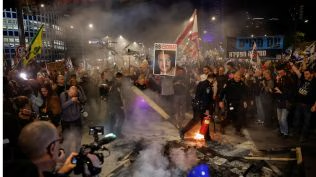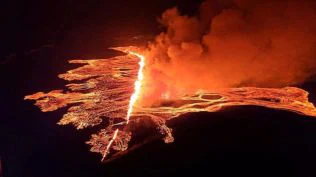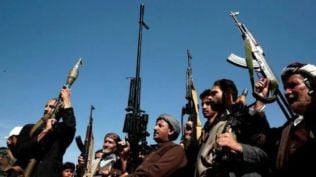Every night during the Muslim holy month of Ramadan, the man would come along Rawoand Altatar’s street, banging on his drum and calling out to the faithful to wake them up for suhoor, the predawn meal. His nightly mission used to be lit up by Ramadan lamps and twinkling decorations.
But this Ramadan, Altatar’s street is eerie. The man, called a musaharati in Arabic, is absent. There are no decorations or electricity, and the street is surrounded by buildings destroyed or damaged in Israel’s bombardment. Their own home has been destroyed as well.

“There is no sense of Ramadan,” she said, referring to the month when Muslims fast all day. “We are missing our family and gatherings, the food, even the simplest thing like the sweet juices, the Ramadan decorations and lamps, which filled the streets,” said Altatar, a photographer who worked at a private school before the war.
Israel’s war in the Gaza Strip has transformed Ramadan, which began Monday, from one of color and boisterous gatherings into one observed against a backdrop of gray rubble and dark, empty streets.
With no hoped-for cease-fire between Israel and Hamas, the armed group that has controlled Gaza for years, a time of religious devotion, dawn-to-dusk fasting and charity is now a daily struggle for survival. For many Palestinians in Gaza, attempts to bring some cheer into the enclave are up against a mountain of despair.
More than 30,000 Palestinians have been killed in Israel’s bombardment, according to Gaza health authorities, and the threat of famine looms as a result of Israel’s nearly complete siege. The war began after Hamas attacked Israel on October 7, killing some 1,200 people and taking around 240 captives, according to Israeli officials.
Families, which once gathered over feasts to mark the end of a day’s fast, have been separated and dispersed, as most of Gaza’s 2.2 million residents have fled their homes. Many now live in crowded tent encampments.
Many mosques where nightly Ramadan prayers were held have been bombed to rubble. Israel has accused Hamas of operating from some of Gaza’s mosques, a charge Hamas denies.
Also missing is the happiness of children, especially when they come out in the streets after iftar — the breaking of the fast — with their Ramadan lamps and toys, Altatar said.
“Now everyone is inside their homes even before the sun goes down, feeling afraid,” she said.
Disclaimer: The copyright of this article belongs to the original author. Reposting this article is solely for the purpose of information dissemination and does not constitute any investment advice. If there is any infringement, please contact us immediately. We will make corrections or deletions as necessary. Thank you.







